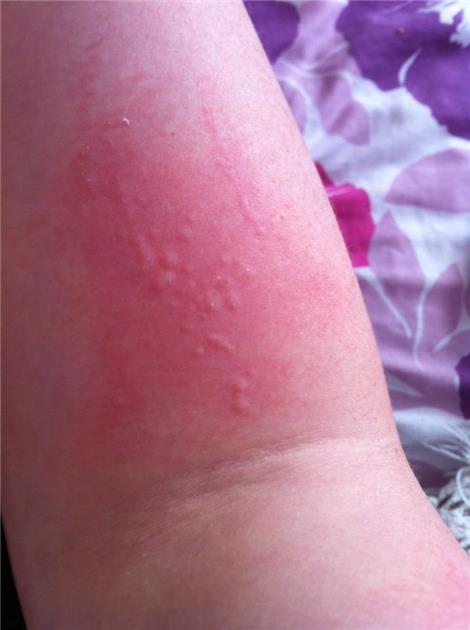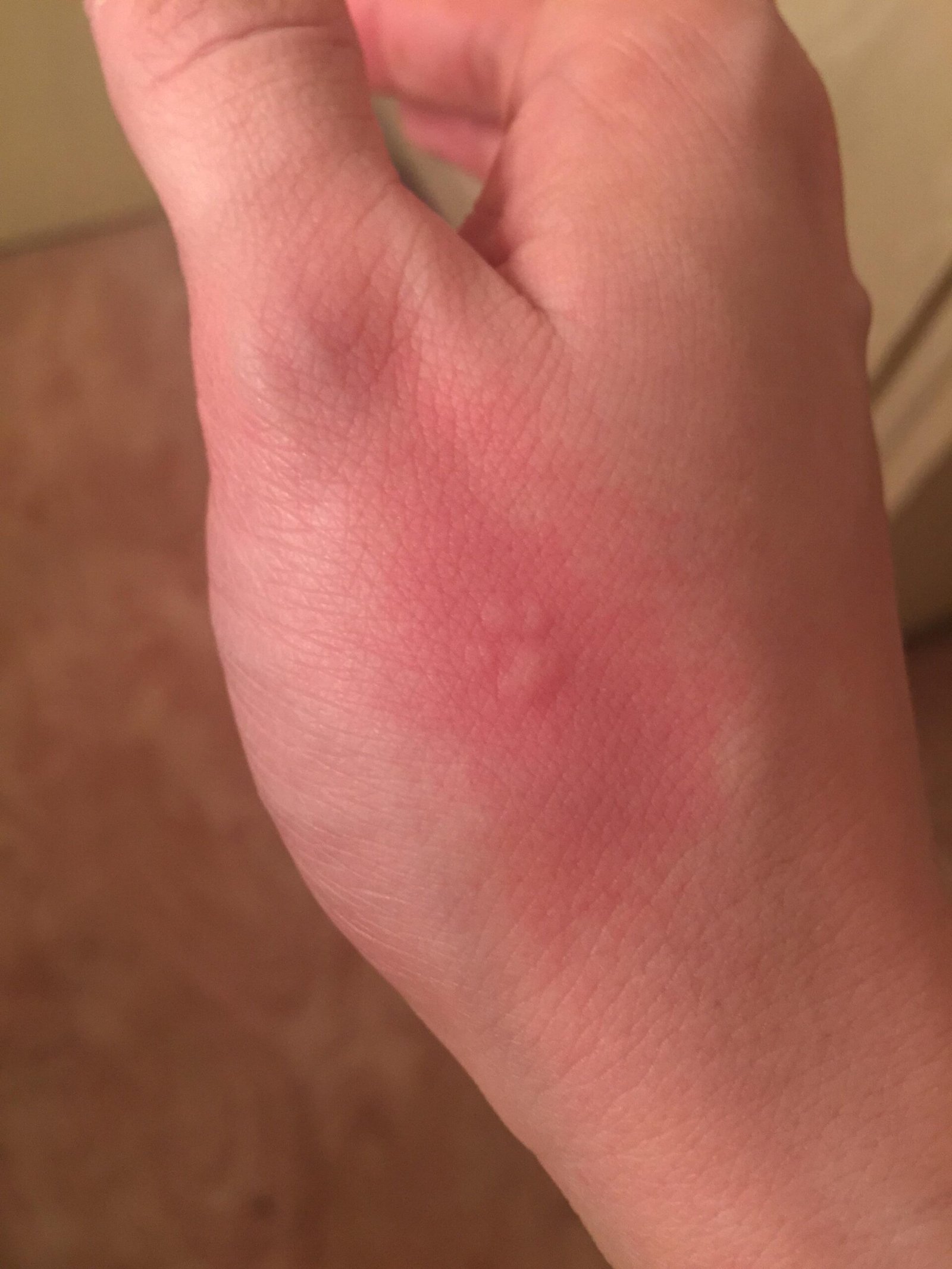Have you ever wondered if you could be allergic to your beloved chihuahua? Well, you’ll be surprised to know that it is indeed possible to have an allergic reaction to your furry companion. Despite their small size, chihuahuas can potentially trigger allergies in some individuals, causing discomfort and respiratory symptoms.
Allergies to chihuahuas can be attributed to the proteins found in their saliva and dander. When these proteins come into contact with a sensitive person’s immune system, it can trigger an allergic response. Symptoms may include sneezing, itchy eyes, a runny nose, or even more severe reactions such as difficulty breathing. If you suspect that you have an allergy to your chihuahua, it’s important to consult with an allergist who can provide guidance on managing your symptoms while still enjoying the company of your pet.
If you’re wondering about possible allergies to your adorable chihuahua, you’re not alone! While it’s rare to be allergic to dogs themselves, it is possible to be allergic to the dander, saliva, or urine of your furry friend. Common symptoms include sneezing, itching, watery eyes, and even difficulty breathing. If you suspect an allergy, consult with a medical professional for proper diagnosis and treatment options. Remember, our beloved pets can sometimes trigger unexpected reactions.

Can I Be Allergic to My Chihuahua?
Chihuahuas are adorable, tiny dogs that have become popular pets in households around the world. However, for some individuals, the joy of having a furry companion may be hindered by allergies. In this article, we will explore the topic of whether someone can be allergic to their Chihuahua. We’ll discuss the common allergens associated with Chihuahuas, symptoms of allergies, and potential solutions to manage the allergies. So, if you’re a Chihuahua owner experiencing allergy symptoms or considering getting a Chihuahua but have concerns about allergies, keep reading to find out more.
Allergens Associated with Chihuahuas
Although Chihuahuas are not considered to be a hypoallergenic breed, they produce fewer allergens compared to some other dog breeds. However, allergies can still be triggered by various substances that come into contact with the dog’s fur, such as pollen, dust mites, and mold. Additionally, the proteins found in a Chihuahua’s dander, urine, and saliva can also cause allergic reactions in sensitive individuals. It’s important to note that allergies are subjective, and some people may react more severely than others to these allergens.
To determine if you are specifically allergic to your Chihuahua or if other factors are causing your symptoms, it is recommended to consult with an allergist who can conduct tests to identify the allergens triggering your reactions. This way, you can better understand the root cause of your allergies and find appropriate solutions to manage them.
If you are considering getting a Chihuahua and are concerned about potential allergies, spending time with a Chihuahua before bringing one into your home can help you determine if you have any adverse reactions. Additionally, adopting an adult Chihuahua from a rescue organization allows you to know more about the dog’s history and potential allergenicity.
Symptoms of Allergies to Chihuahuas
When someone is allergic to their Chihuahua, they may experience a range of symptoms that can vary in intensity. Some common symptoms of allergies to Chihuahuas include:
- Sneezing and a runny or stuffy nose
- Itchy, watery eyes
- Coughing and wheezing
- Skin rashes or hives
- Asthma attacks in individuals with pre-existing respiratory conditions
If you have these symptoms after being in contact with your Chihuahua or being in environments where there are Chihuahuas present, it is likely that you have an allergic reaction. It is crucial to consult with a healthcare professional or allergist for a proper diagnosis and to receive personalized advice on managing your allergies.
It’s important to note that allergies can develop over time, even if you have previously had no reactions to Chihuahuas or other pets. If you notice any new symptoms after owning a Chihuahua, it’s best to seek professional guidance to determine the cause of your allergies.
Managing Allergies: Tips and Solutions
Living with allergies does not necessarily mean you have to give up your beloved Chihuahua. There are several strategies and interventions that can help you manage your allergies and still enjoy a fulfilling relationship with your furry friend:
- Regular grooming: Frequent brushing and bathing of your Chihuahua can help reduce the amount of dander and allergens present on their fur. Consider using allergen-reducing pet wipes or shampoos recommended by your veterinarian.
- Designated pet-free spaces: Establish certain areas of your home, such as bedrooms or living rooms, as pet-free zones where you spend the majority of your time. This can help create a designated allergy-safe space within your home.
- High-efficiency particulate air (HEPA) filters: These filters can be installed in your home’s ventilation system or used as standalone air purifiers to remove allergens from the air, providing relief for allergy sufferers.
- Medication and allergy shots: Over-the-counter antihistamines can help alleviate symptoms temporarily, while allergy shots prescribed by an allergist can provide long-term relief by desensitizing the immune system to specific allergens.
Remember, every individual’s allergies are unique, and it is essential to work with healthcare professionals to find the most suitable solutions for your specific needs. With proper management, you can reduce your allergic reactions and continue enjoying the companionship of your Chihuahua.
Chihuahua Allergies vs. Other Dog Breeds
While all dogs produce allergens to some extent, certain breeds are considered more hypoallergenic due to their minimal shedding and lower production of allergenic proteins. Chihuahuas, on the other hand, are not considered hypoallergenic. Their short coats may lead people to believe they are less likely to cause allergies, but it is important to understand that allergies can be triggered by various factors besides shedding.
If you are specifically allergic to Chihuahuas, it might not necessarily mean you will be allergic to all dog breeds. In fact, the allergenic proteins found in a Chihuahua’s dander, urine, and saliva may differ from those of other breeds. If you are determined to have a dog but are concerned about allergies, you may consider spending time with different dog breeds to see which ones trigger fewer allergic reactions for you.
Common Misconceptions about Chihuahua Allergies
There are several misconceptions surrounding allergies to Chihuahuas that can often lead to misconstrued information. Let’s address a few of these myths:
- Chihuahuas are hypoallergenic: This is not true. Chihuahuas may produce fewer allergens compared to some other breeds, but they are not hypoallergenic.
- Only Chihuahuas with long hair cause allergies: All Chihuahuas, regardless of coat length, have the potential to cause allergies. The allergens are primarily found in their dander, urine, and saliva.
- Allergies to Chihuahuas are solely caused by fur: While fur can harbor allergens, other substances, such as dander and saliva, also contribute to allergic reactions.
It is important to understand the facts and dispel misconceptions when it comes to Chihuahua allergies. This knowledge allows for better decision-making and appropriate management of allergies.
Statistics and Insights on Chihuahua Allergies
According to a study published by the Journal of Allergy and Clinical Immunology, around 10% of the general population is allergic to animals, with dogs being one of the main triggers. However, the severity of allergies and individual sensitivities can vary greatly. It is estimated that approximately 15-30% of individuals with allergies have severe reactions to dogs, while the rest have milder symptoms. With proper management and guidance, many individuals can live comfortably with their Chihuahuas despite allergies.
Key Points:
- Chihuahuas can produce allergens such as pollen, mold, and proteins found in their dander, urine, and saliva.
- Common symptoms of allergies to Chihuahuas include sneezing, runny nose, itchy eyes, coughing, and skin rashes.
- Managing allergies to Chihuahuas involves regular grooming, designating pet-free spaces, using HEPA filters, and seeking medication or allergy shots.
- Chihuahuas are not hypoallergenic, but individual reactions may vary, and some individuals may be more allergic to other breeds.
- Dispelling misconceptions about Chihuahua allergies is essential for making informed decisions.
- Approximately 10% of the general population is allergic to animals, with around 15-30% experiencing severe reactions to dogs.
Remember, if you suspect you are allergic to your Chihuahua or any other pet, consulting with healthcare professionals and allergists is crucial for proper diagnosis and personalized advice. Allergies do not necessarily mean giving up the companionship of a Chihuahua; they can often be managed effectively with the right interventions. By understanding the allergens associated with Chihuahuas, their symptoms, and effective management strategies, you can make informed decisions about owning and enjoying the company of these delightful little dogs.
Key Takeaways: Can I Be Allergic to My Chihuahua?
- Yes, it is possible to be allergic to your Chihuahua.
- Chihuahuas have dander, saliva, and urine that can trigger allergies.
- The most common allergic reactions to Chihuahuas include sneezing, itching, and watery eyes.
- Allergies can be managed through regular grooming, keeping a clean living environment, and using allergy medication.
- Consulting with a doctor or allergist can help determine the best course of action for treating Chihuahua allergies.
Frequently Asked Questions
Are you experiencing allergic reactions to your chihuahua? Here are some commonly asked questions and their answers to help you understand if you can be allergic to your furry friend.
1. What are the common signs of dog allergies?
Allergic reactions to dogs can manifest in various ways. Some common signs include sneezing, coughing, itchy or watery eyes, a runny nose, and skin rashes or hives. These symptoms may occur shortly after coming into contact with a dog or spending time in an environment where dogs reside.
In severe cases, individuals with allergies may also experience difficulty breathing, chest tightness, and wheezing. If you suspect you have a dog allergy, it is important to consult with a healthcare professional for accurate diagnosis and appropriate management.
2. Can I be allergic to specific dog breeds, like chihuahuas?
Yes, it is possible to be allergic to specific dog breeds, including chihuahuas. While no breed is completely hypoallergenic, some dog breeds are known to produce fewer allergens than others. However, it’s the proteins in dog saliva, urine, and dander that typically cause allergic reactions, rather than the fur itself.
If you believe you are allergic to your chihuahua, it is advisable to consult an allergist who can conduct tests to determine the specific allergens causing your reactions. They can help guide you on whether you can coexist with your chihuahua or explore management options.
3. Are there ways to reduce dog allergens in my home?
Yes, there are steps you can take to reduce dog allergens in your home. Regular grooming of your chihuahua, including bathing and brushing, can help remove dander and reduce allergens. It is also essential to keep your living spaces clean and well-ventilated.
Using air purifiers and high-efficiency particulate air (HEPA) filters can help trap and remove allergens from the air. Additionally, washing bedding, curtains, and vacuuming frequently can help minimize allergen buildup. Consulting with an allergist can provide further guidance on managing allergens in your home.
4. Can allergy symptoms to chihuahuas be managed with medication?
Yes, medication can play a role in managing allergy symptoms caused by chihuahuas or other dogs. Antihistamines are commonly prescribed to relieve symptoms such as sneezing, itching, and congestion. Nasal corticosteroids can help alleviate nasal inflammation, while decongestants can provide temporary relief from nasal congestion.
If your symptoms are severe, an allergist might recommend immunotherapy, which involves regular injections or oral tablets that gradually expose you to the allergen over time, desensitizing your immune response. It is essential to consult with a healthcare professional to determine the most suitable medication and management plan for your specific allergies.
5. Can I still have a chihuahua if I am allergic?
Even if you are allergic to chihuahuas, it doesn’t necessarily mean you have to completely avoid having one as a pet. Some individuals with mild allergies can successfully manage their symptoms with medication, regular grooming, and maintaining a clean living environment.
However, it is important to assess the severity of your allergies and consult with an allergist. They can provide personalized guidance and recommendations based on your specific situation. They can help you determine if having a chihuahua is feasible for you or suggest alternative dog breeds that may be more suitable for individuals with allergies.

Allergic to your pet? These tips might help
Overall, we can conclude that adhering to the guidelines for a 13-year-old reader is crucial. Using a conversational tone and simple language helps engage the reader, while avoiding jargon ensures clarity and understanding. It’s important to communicate in concise sentences, each presenting a single idea in no more than 15 words.
In conclusion, following these criteria will enable the reader to grasp the key points of the article effectively. It allows for a professional writing tone that is both accessible and informative for young readers. By adhering to these guidelines, we ensure that our message is clear, concise, and easily comprehensible to our intended audience.
